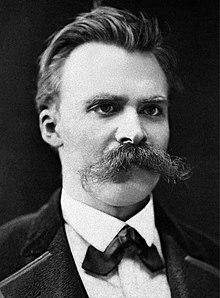
دنیای زبان انگلیسی ( بهروزپور )
لغات و اصطلاح .داستان کوتاه . شعر.جوک .ضرب المثل.اشپزی.رمان. نمایشنامه.متن دوزبانه
دنیای زبان انگلیسی ( بهروزپور )
لغات و اصطلاح .داستان کوتاه . شعر.جوک .ضرب المثل.اشپزی.رمان. نمایشنامه.متن دوزبانهGreek Salad
Main Ingredients: http://www.1001recipe.com/recipes/food/greek_salad/ Navid: A bowl of delicious and healthy Greek salad. This is a mixture of cucumber, tomato, red onion, olive and feta cheese. You can add your other favorite ingredients such as lettuce, green pepper or avocado.
Navid: A bowl of delicious and healthy Greek salad. This is a mixture of cucumber, tomato, red onion, olive and feta cheese. You can add your other favorite ingredients such as lettuce, green pepper or avocado.
English cucumber: 1/2, sliced
Red onion: 1 small, thinly sliced
Plum tomatoes: 3-4
Cherry tomatoes: a few
Olives: 1/4 cup
Feta cheese: 100 grams, crumbled
Dressing Ingredients:
Dried oregano: 1 tsp
Olive oil: 3 tbsp
Lemon juice: 1 tbsp
Wine vinegar: 1 tbsp
Salt
Pepper
Directions:
1. Blend all dressing ingredients and whisk until smooth.
2. Cut tomatoes into pieces.
3. Toss all the main ingredients and dressing in a large bowl until evenly coated.
دوزبانه :چند توصیه۱
There are moments in life when you miss someone
So much that you just want to pick them from
Your dreams and hug them for real
گاهی در زندگی دلتان به قدری برای کسی تنگ می شود
که می خواهید او را از رویاهایتان بیرون بیاورید
و آرزوهای خود در آغوش بگیرید
******
When the door of happiness closes, another opens
But often times we look so long at the
Closed door that we don't see the one which has been opened for us
وقتی در شادی بسته می شود، در دیگری باز می شود
ولی معمولاً آنقدر به در بسته شده خیره می مانیم
که دری که برایمان باز شده را نمی بینیم
******
Don't go for looks; they can deceive
Don't go for wealth; even that fades away
Go for someone who makes you smile
Because it takes only a smile to
Make a dark day seem bright
Find the one that makes your heart smile
به دنبال ظواهر نرو؛ شاید فریب بخوری
به دنبال ثروت نرو؛ این هم ماندنی نیست
به دنبال کسی باش که به لبانت لبخند بنشاند
چون فقط یک لبخند می تواند
شب سیاه را نورانی کند
کسی را پیدا کن که دلت را بخنداند
منبع:گروه الهه موفقیت
رمان Heart of Darkness
Heart of Darkness is a novella written by Joseph Conrad. Before its 1902 publication, it appeared as a three-part series (1899) in Blackwood's Magazine. It is widely regarded as a significant work of English literature[1] and part of the Western canon.
The story tells of Charles Marlow, an Englishman who took a foreign assignment from a Belgian trading company as a ferry-boat captain in Africa. Heart of Darkness exposes the dark side of European colonization while exploring the three levels of darkness that the protagonist, Marlow, encounters: the darkness of the Congo wilderness, the darkness of the Europeans' cruel treatment of the natives, and the unfathomable darkness within every human being for committing heinous acts of evil.[2] Although Conrad does not give the name of the river, at the time of writing the Congo Free State, the location of the large and important Congo River, was a private colony of Belgium's King Leopold II. In the story, Marlow is employed to transport ivory downriver. However, his more pressing assignment is to return Kurtz, another ivory trader, to civilization, in a cover-up. Kurtz has a reputation throughout the region.
Heart of Darkness is a novella written by Joseph Conrad. Before its 1902 publication, it appeared as a three-part series (1899) in Blackwood's Magazine. It is widely regarded as a significant work of English literature[1] and part of the Western canon.
The story tells of Charles Marlow, an Englishman who took a foreign assignment from a Belgian trading company as a ferry-boat captain in Africa. Heart of Darkness exposes the dark side of European colonization while exploring the three levels of darkness that the protagonist, Marlow, encounters: the darkness of the Congo wilderness, the darkness of the Europeans' cruel treatment of the natives, and the unfathomable darkness within every human being for committing heinous acts of evil.[2] Although Conrad does not give the name of the river, at the time of writing the Congo Free State, the location of the large and important Congo River, was a private colony of Belgium's King Leopold II. In the story, Marlow is employed to transport ivory downriver. However, his more pressing assignment is to return Kurtz, another ivory trader, to civilization, in a cover-up. Kurtz has a reputation throughout the region.
Background
Eight and a half years before writing the book, Conrad had gone to serve as the captain of a Congo steamer. On arriving in the Congo, he found his steamer damaged and under repair. He became sick and returned to Europe before serving as captain. Some of Conrad's experiences in the Congo and the story's historic background, including possible models for Kurtz, are recounted in Adam Hochschild's King Leopold's Ghost.[3]
The story-within-a-story literary device that Conrad chose for Heart of Darkness—one in which Charles Marlow relates to other characters his account of his journey—has many literary precedents. Emily Brontë's Wuthering Heights and Mary Shelley's Frankenstein used a similar device but the best known examples are Geoffrey Chaucer's The Canterbury Tales, The Arabian Nights, Samuel Taylor Coleridge's The Rime of the Ancient Mariner and Boccaccio's Decameron.
Modern Library 100 Beste Romans
ادامه مطلب ...Friedrich Wilhelm Nietzsche : نیچه
Friedrich Wilhelm Nietzsche (German pronunciation: [ˈfʁiːdʁɪç ˈvɪlhɛlm ˈniːtsʃə]; in English UK: /ˈniːtʃə/, US: /ˈniːtʃi/[1]) (October 15, 1844 – August 25, 1900) was a 19th-century German philosopher and classical philologist. He wrote critical texts on religion, morality, contemporary culture, philosophy and science, displaying a fondness for metaphor, irony and aphorism.
Nietzsche's influence remains substantial within and beyond philosophy, notably in existentialism, nihilism, and postmodernism. His style and radical questioning of the value and objectivity of truth have resulted in much commentary and interpretation, mostly in the continental tradition. His key ideas include the death of God, perspectivism, the Übermensch, the eternal recurrence, and the will to power. Central to his philosophy is the idea of “life-affirmation,” which involves an honest questioning of all doctrines that drain life's expansive energies, however socially prevalent those views might be.[2]
Nietzsche began his career as a classical philologist before turning to philosophy. At the age of 24 he was appointed to the Chair of Classical Philology at the University of Basel (the youngest individual to have held this position), but resigned in 1879 due to health problems that plagued him most of his life. In 1889 he became mentally ill, possibly due to atypical general paralysis attributed to tertiary syphilis.[3] He lived his remaining years in the care of his mother until her death in 1897, then under the care of his sister until his death in 1900.
نامه نگاری انگلیسی ۴
نامه نگاری انگلیسی
هنگامی که نامه را به پایان میبریم استفاده از یک عبارت تعارفی و احترام آمیز جلوه بسیار خوبی به نامه می دهد.
عبارات مورد استفاده برای بستن و به پایان بردن نامه:
,Yours faithfuly
-------------------------------------------------------------------------
,Yours truly
------------------------------------------------------------------------
,Yours very truly
-----------------------------------------------------------------------
,Yours sincerely
-----------------------------------------------------------------------
,Yours affectionately






